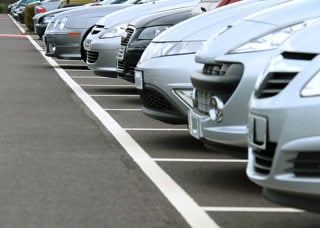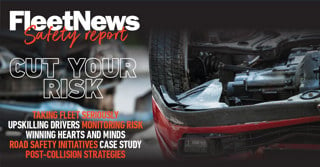With the scale of the spending review cuts now apparent, although the full impact on local authority services has still to be confirmed, public sector fleets are searching for ways to cut their costs.
One key area is the use of the grey fleet which is commonplace among the public sector and represents a massive outlay.
However, some organisations are successfully addressing this issue.
For example, the Department for Work and Pensions, which has been working to reduce its grey fleet mileage for more than three years, is now at the stage where its 110,000 employees know that they can use their own vehicle for work journeys only if those journeys are short and gets them to a public transport hub.
It is journeys such as these where the grey fleet is often the most convenient and cheapest form of transport. Taxis are often too expensive as are using hire or pool cars just to get to a local railway station.
“We see the grey fleet as something to get an employee to the transport hub,” Richard Fountain, the DWP’s head of sustainability and climate change told delegates at a grey fleet seminar hosted by the Wales Audit Office last week.
“The grey fleet is usually the best solution for this type of journey.”
In Wales, public sector grey fleet drivers cover 100 million miles a year at a cost of some £50 million.
A travel hierachy is now in place at the DWP, which requires senior management to authorise all travel with grey fleet journeys.
Over the three years the DWP has been reinforcing the message that grey fleet use is to be the exception rather than the rule, the department has seen grey fleet mileage fall from 70 million in 2006 to 25 million.
There were some battles, admits Fountain, not least that some employees saw the 40p per mile they were reimbursed for their grey fleet use as a “nice little earner”.
He says the answer is not to use cost-cutting as the reason for introducing measures to cut grey fleet mileage, but rather to argue that these changes are necessary to ensure the health and safety of employees and to reduce the environmental impact of the fleet.
The DWP is now working on a fully integrated travel management system, which, when up and running, will authorise and assign travel based on what is the most environmentally sound, the most practical and the most cost-effective solution.
Both the DWP and the Environment Agency have rejected video conferencing as a worthwhile alternative to travel. Both say that audio conferencing is cheaper, easier to use and more popular with staff.
The Environment Agency has also been proactive in cutting grey fleet mileage. It has arguably been harsher in its approach.
For example, employees may still use their own vehicles but will not be repaid for up to the first 75 miles of any journey. They are also limited to just 3,000 miles a year. If they clock up more business miles in their own vehicle during the year, the expense claims will not be paid.
“All journeys must be authorised and we will not pay more than 75 miles, so no one can claim for more than 75 miles for a journey,” explains Dale Eynon, head of fleet operations. “It works very well.”
But for it to work, staff must be given viable alternatives.
“Telephone conferencing works brilliantly for us and train use has risen.
“But we also have sub-100g/km pool cars that are attractive to users. In addition, we use car hire.”
However, the agency has not been able to get all of its initiatives through.
For example, it wanted to stipulate all grey fleet cars should not emit more than 175g/km of CO2 and should have a minimum EuroNcap crash test rating, but was unable to introduce it.
It also had the same battle as that faced by the DWP and that now facing many councils.
Many public sector employees see grey fleet reimbursement rates as a way to increase their wages.
“Some were earning good money from the grey fleet,” says Eynon. “It had become a salary supplement and so we have had some tough battles.
“Some said the changes were draconian but we argued successfully that the consequences of not introducing these changes were far worse.”
Rob Ingram, director of business rental at Enterprise-Rent-A-Car, which supplies the DWP with its rental vehicles, said he expects more councils to follow the DWP’s lead and address grey fleet use by specifying rental vehicle use where no public transport alternative is available.

















Login to comment
Comments
No comments have been made yet.